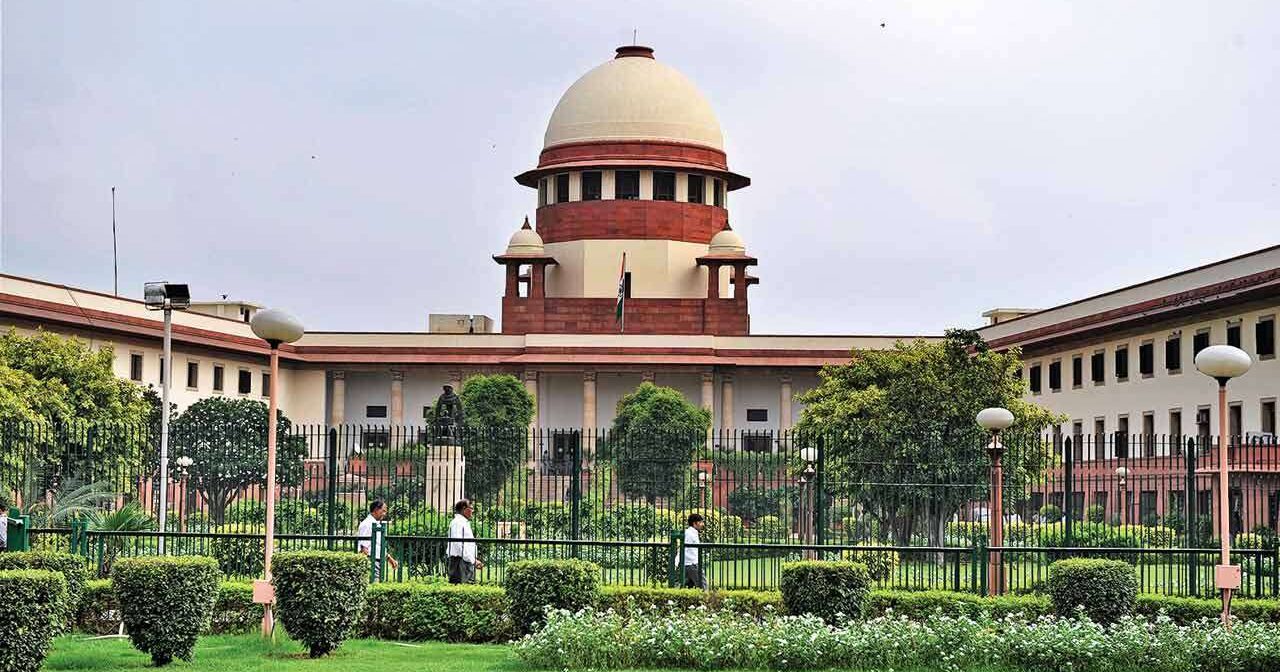
New Delhi: A day after the Ministry of Law and Justice passed an ordinance, creating an authority for the transfer and posting of Group-A officers in Delhi, the Centre on Saturday appealed Supreme Court to review its May 11 order, authorising legislative and executive power over services to the elected government of the national capital.
‘Centre has filed a review of the May 11 judgement’, said a lawyer representing Centre. Centre yesterday brought an ordinance to create for the first time a National Capital Civil Service Authority (NCCSA) that will have the power to recommend the transfer and posting of all Group A officers and officers of DANICS serving in Delhi. NCCSA will be headed by the Chief Minister of Delhi, with the Chief Secretary and Principal Home Secretary of Delhi being the other two members.
On Friday, the Centre brought an ordinance designating the Lieutenant Governor (LG) as the administrator of Delhi who will have the final say on the postings and transfer of all bureaucrats serving the Delhi government. The ordinance, promulgated by President Droupadi Murmu, seeks to amend the Government of National Capital Territory (NCT) of Delhi Act, 1991 and effectively negates the Constitution bench verdict that gave the Aam Aadmi Party (AAP) government the power to make laws and wield control over bureaucrats deputed to the Delhi government. It said that all matters required to be decided by the Authority shall be decided by majority of votes of the members present and voting. In case of a difference of opinion in the Authority, the final decision will lie with the Lieutenant Governor of Delhi, the ordinance said.
On May 11, a five-judge Constitution bench unanimously said that the division of administrative powers between the Union and Delhi government ‘must be respected’ and held that the Delhi government has ‘legislative and executive power over services’ in the national capital, including the bureaucrats, except those relating to public order, police and land. A five-judge Constitution bench of Chief Justice of India DY Chandrachud and Justices MR Shah, Justice Krishna Murari, Justice Hima Kohli and PS Narasimha has said, ‘The division of administrative powers between the Union and the NCTD as explained… must be respected’.
The apex court in its 105-page-judgement has said that the government of Delhi is not similar to other Union Territories. ‘By virtue of Article 239AA, NCTD is accorded a ‘sui generis’ status, setting it apart from other Union Territories’, the bench in its verdict stated. Article 239AA provides the framework for the exercise of legislative powers by the legislative assembly of the Union territory of Delhi and the Parliament in respect of Delhi. Entry 41 of the List-II (State List) authorises a state government to frame laws on state public services and state public service commission.
The executive power of the Delhi government is co-extensive with its legislative power, that is, it shall extend to all matters with respect to which it has the power to legislate, the bench has opined. ‘The Union of India has executive power only over the three entries in List II over which the government of NCTD does not have legislative competence’, it has added. The bench further said, In a democratic form of government, the real power of administration must reside in the elected arm of the State, subject to the confines of the Constitution. A constitutionally entrenched and democratically elected government needs to have control over its administration’. The apex court has also reiterated that in light of Article 239AA and the 2018 Constitution bench judgment, the Lieutenant Governor is bound by the aid and advice of the Council of Ministers of the Delhi government in relation to matters within the legislative scope of Delhi.
The judgement of the top court has further said that in a democracy, accountability lies with the people who are the ultimate sovereign. The verdict of the apex court has come on the tussle between Delhi and the Central government on the contentious issue of who should control administrative services in Delhi over the transfers and postings of officers in the national capital. On February 14, 2019, a two-judge bench of the top court delivered a split verdict on the question of powers of the GNCTD and Union government over services and referred the matter to a three-judge Bench. The case was later sent to a five-judge Constitution bench. Governance of the national capital has witnessed a power struggle between the Centre and the Delhi government since the Aam Aadmi Party (AAP) came to power in 2014.
Prior to February 2019 judgement, a five-judge constitution bench of the Supreme Court had on July 4, 2018, laid down the broad parameters for governance of the national capital. In the landmark verdict, it had unanimously held that Delhi cannot be accorded the status of a State but clipped the powers of the LG saying he has no ‘independent decision-making power’ and has to act on the aid and advice of the elected government. It had restricted the jurisdiction of the LG to matters pertaining to land, police and public order and on all other matters, it held that the LG would have to act on the aid and advice of the council of ministers.

Post Your Comments